Our Grantees
Grantees 2025
In the first Call, four media organizations from Germany and two from Switzerland will each receive up to 400,000 euros (General Funding line) and up to 100,000 euros (Science and Data Journalism Funding Line). The jury's decision focused on media that work with different business models to finance community-oriented local journalism.
Detektor.fm was the jury’s choice in the second call
detektor.fm
General Funding Line
For its cooperation with Media Forward Fund, detektor.fm will receive €500,000 to launch a new podcast offering for Saxony-Anhalt ahead of the election as part of its regionalization strategy. In addition to the weekly podcast and newsletter, four live events are planned in Saxony-Anhalt to build and sustain a regional user community. The goal is to increase newsletter subscribers sevenfold and boost detektor.fm podcast followers by at least 20 percent. The newsletter and podcast will continue to be published after the cooperation ends.
“Maintaining a healthy information ecosystem gets more difficult as the conditions for providers for reliable information - especially in regional markets - get more complicated,” the jury explained its decision: “Against this context, detector.fm has, over sixteen years, established itself as a resilient media organization in Eastern Germany with an innovative approach to audio. We are happy to support the next stage in detektor.fm's development with a podcast project that enriches media diversity and strengthens independent journalism in Saxony-Anhalt.
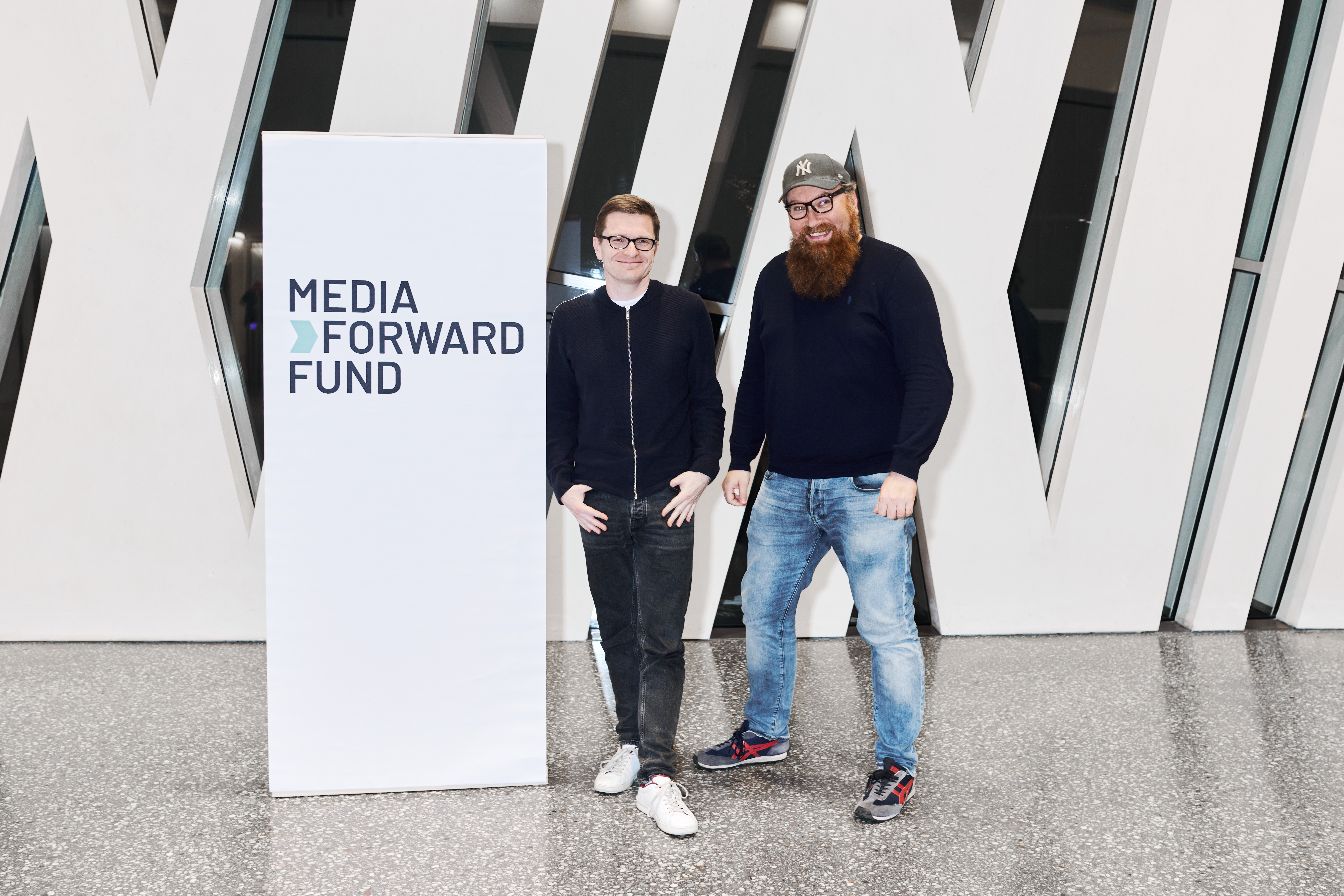
Christian Bollert and Claudius Niessen from detektor.fm (photo: Valerie Maltseva)
Bajour
General Funding Line
The non-profit Swiss local media outlet Bajour, which reaches over 20,000 people every day and has established itself as an important journalistic service in Basel with its Basel Briefing newsletter since 2019, is receiving a grant of 400,000 euros. Bajour intends to use the funding to expand its Basel Briefing with hyperlocalized news to the ten most populous suburban communities in Basel. In addition, municipalities with a duty to inform are to be brought on board as financial cooperation partners, while new paying supporters and additional advertising revenue are to be generated.
The jury recognizes the approach of “deep local journalism”: "Bajour offers an easily accessible service in terms of tone and language that is tailored to the communicative needs of the local target group. The approach of tapping into communities as a source of revenue in their distribution channels has the potential to serve as a role model for local journalistic innovation for the entire DACH region."
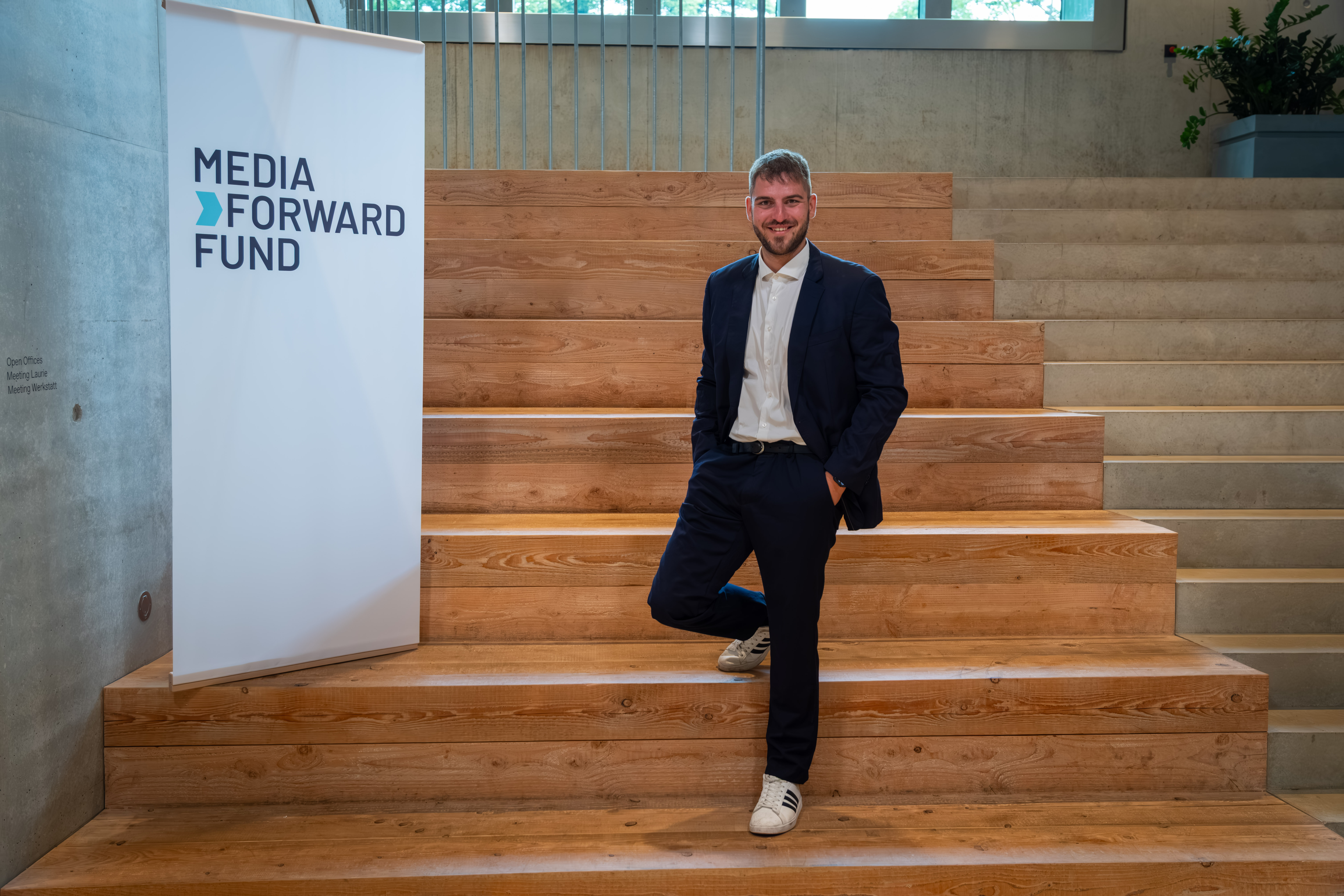
Niccolo Brunetti from the Swiss medium Bajour (Copyright: Paul Alexander Probst)
loky*
General Funding Line
The MFF is entering into a cooperation with the German local medium loky* from the Berlin district of Prenzlauer Berg, which aims to build a local news community through everyday newsletter journalism and regular dialogue, with project funding of 400,000 euros. The aim is to expand the reporting area and offerings to neighboring districts and thus gain additional newsletter subscriptions.
loky* convinced the jury as a pioneer for urban community journalism with high relevance directly on site: "loky* understands the special needs and topics of the local target group and has built a strong and convincing brand concept on this. We particularly liked the lightness, curiosity and optimism as a response to the phenomenon of news avoidance."
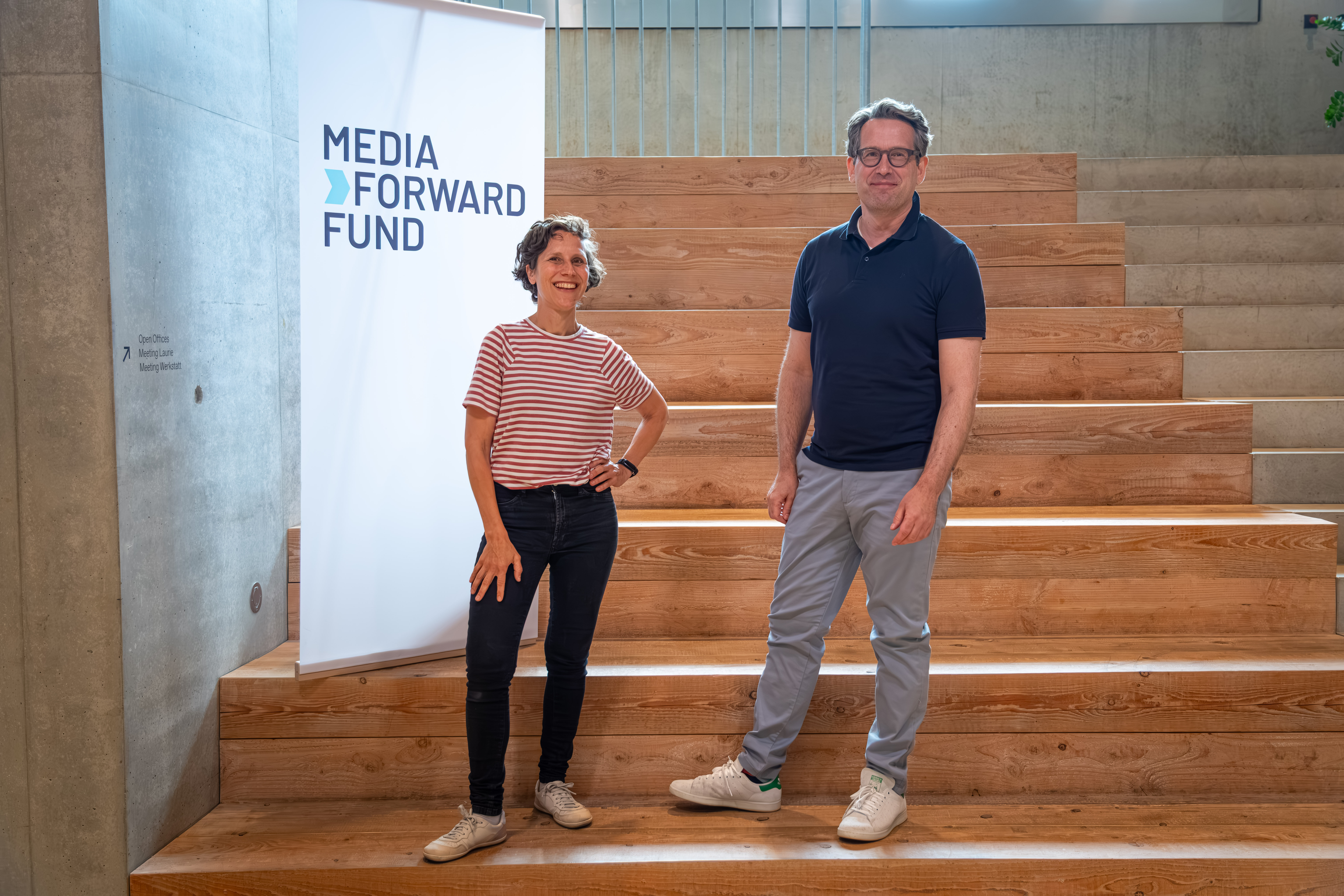
Juliane Schader and Philipp Schwörbel from the German medium loky* (Copyright: Paul Alexander Probst)
Spatz
General Funding Line
New digital village newspapers: Spatz is a Swiss digital platform that is building a network of AI-supported hyperlocal news sources via newsletter and WhatsApp - by and for the village community. The Media Forward Fund is providing 400,000 euros to support the scaling strategy of the non-profit media organization Spatz and an expansion from eight to at least twenty digital village newspapers in the DACH region. In addition, a sustainable financing mix of memberships and the development of local advertising markets is to be established.
“With its AI-generated journalistic offerings, Spatz fills the gaps in rural areas that traditional journalism has left behind,” says the jury in its statement. “We see an interesting and innovative business model with high scaling potential to serve rural and sparsely populated regions in Switzerland and beyond.”
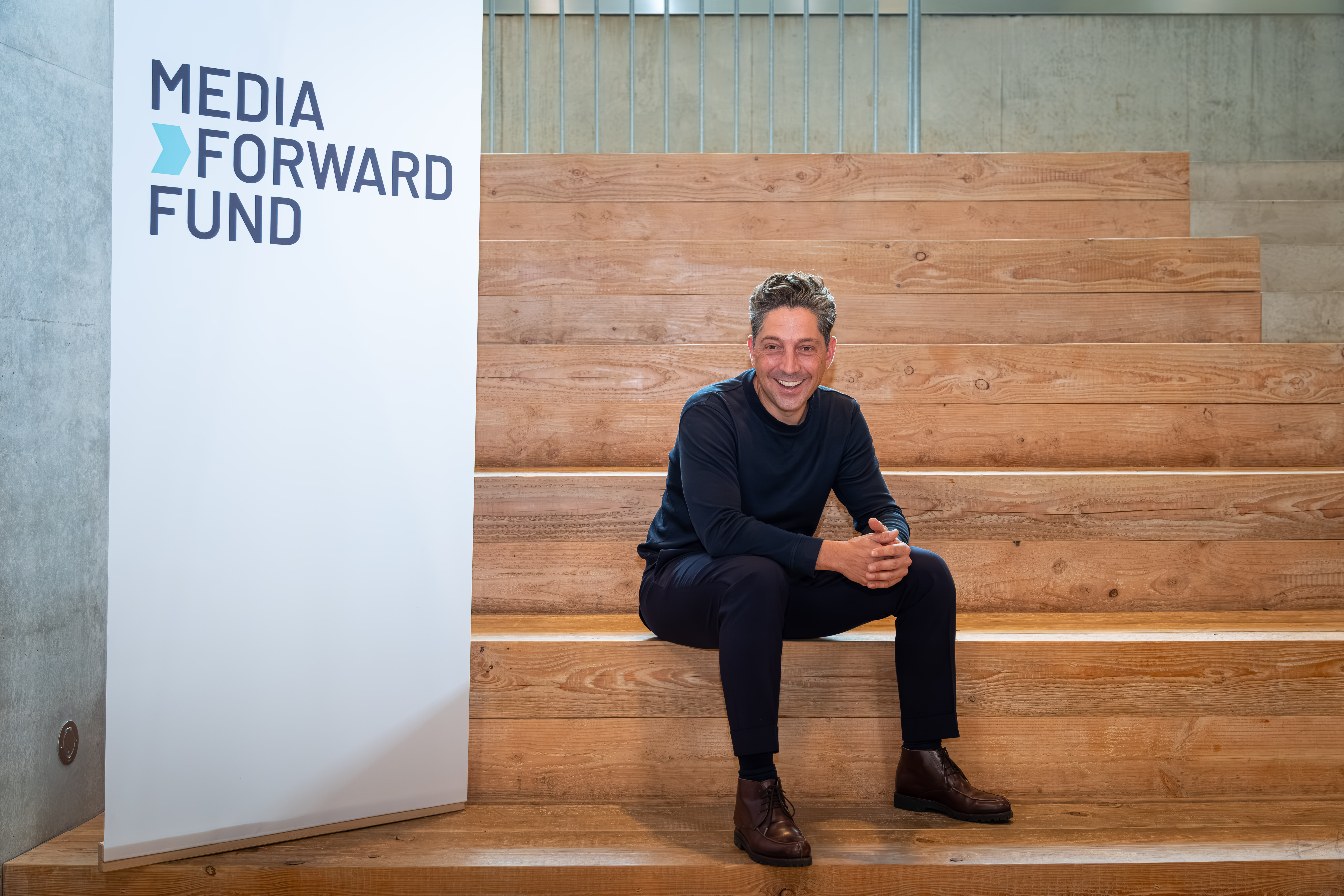
Hannes Grassegger from the Swiss medium Spatz (Copyright: Paul Alexander Probst)
TWENTYTWO Film
Science and Data Journalism Funding Line
The MFF is entering into a partnership with the public-interest science editorial team of TWENTYTWO Film from Cologne, which already produces widely viewed, accessible science journalism for young audiences under the Doktor Whatson brand on YouTube. The project is supported with funding of 100,000 euros. As part of the project, a new Instagram format is to be launched for the successful brand, which uses creative data visualizations to provide information on relevant topics for young people.
The jury praises the clear focus on its target group and the experimental drive of the project: "TWENTYTWO Film shows that well-founded science journalism can also work on attention-driven platforms such as YouTube. Particularly noteworthy: the production should become more independent of individual hosts."

FragDenStaat
Science and Data Journalism Funding Line
The investigative research and transparency platform FragDenStaat, which requests official information at state and EU level based on information rights and evaluates it in a proto-journalistic manner for cooperation with major media partners such as ZDF Magazin Royale, will receive 75,000 euros in funding. With a Federal Press Conference Tracker, FragDenStaat aims to implement a data journalism tool that documents, tags and categorizes statements from federal ministries, factual questions and answers from members of the Federal Press Conference in order to show over long periods of time which topics are frequently discussed, and which are largely ignored.
The jury emphasizes the proto-journalistic infrastructure work that encourages other media to shed light on a topic that would otherwise remain hidden: "The FragDenStaat project strengthens the function of the Federal Press Conference as a subject of reporting. As a data journalism innovation tool, it makes discourse transparent and comprehensible in the long term. It also has the potential to have a positive impact on other data-driven business models."

Dekoder
Science and Data Journalism Funding Line
The German platform Dekoder, which serves as a bridge between journalism and academia by curating, translating and contextualizing relevant content from independent, non-governmental Russian-, Belarusian- and Ukrainian-language journalism, will receive funding of 75,000 euros. With a new newsletter service, Dekoder plans to publish two weekly newsletters: one in German, which will provide information on current events in Russia, Ukraine and Belarus, and another for a Russian-speaking audience, which will provide academically sound classifications on Germany.
"Curation is becoming increasingly important in times of information overload and fragmented public spheres. By curating and translating relevant articles, Dekoder offers a reliable source of information in a media segment characterized by propaganda," said the jury, explaining its decision. “Dekoder has already made a positive impression on us with its data journalism projects and we support its transformation into an independent journalistic format.”

Grantees 2024
Two media organizations from Switzerland and two from Austria will each receive up to 400,000 euros in funding. The focus of their projects is on new methods to increase distribution channels that are in the public interest.
Reflekt
General Funding Line
The Swiss investigative media outlet Reflekt from Bern, which has been regularly uncovering grievances for more than five years and thereby achieving social impact, will receive 300,000 euros in funding. REFLEKT wants to expand its distribution channels (funnel) by working with high-reach hosts to make their investigative research accessible in social videos. Users attracted in this way will then be converted into paying supporters, also via crowdfunding.
“The jury members were impressed by the combination of investigative work with high relevance and the creative translation of investigations into social videos." They were particularly interested in “how host strategies can be used effectively in the future to reach a younger audience with investigative journalism.”
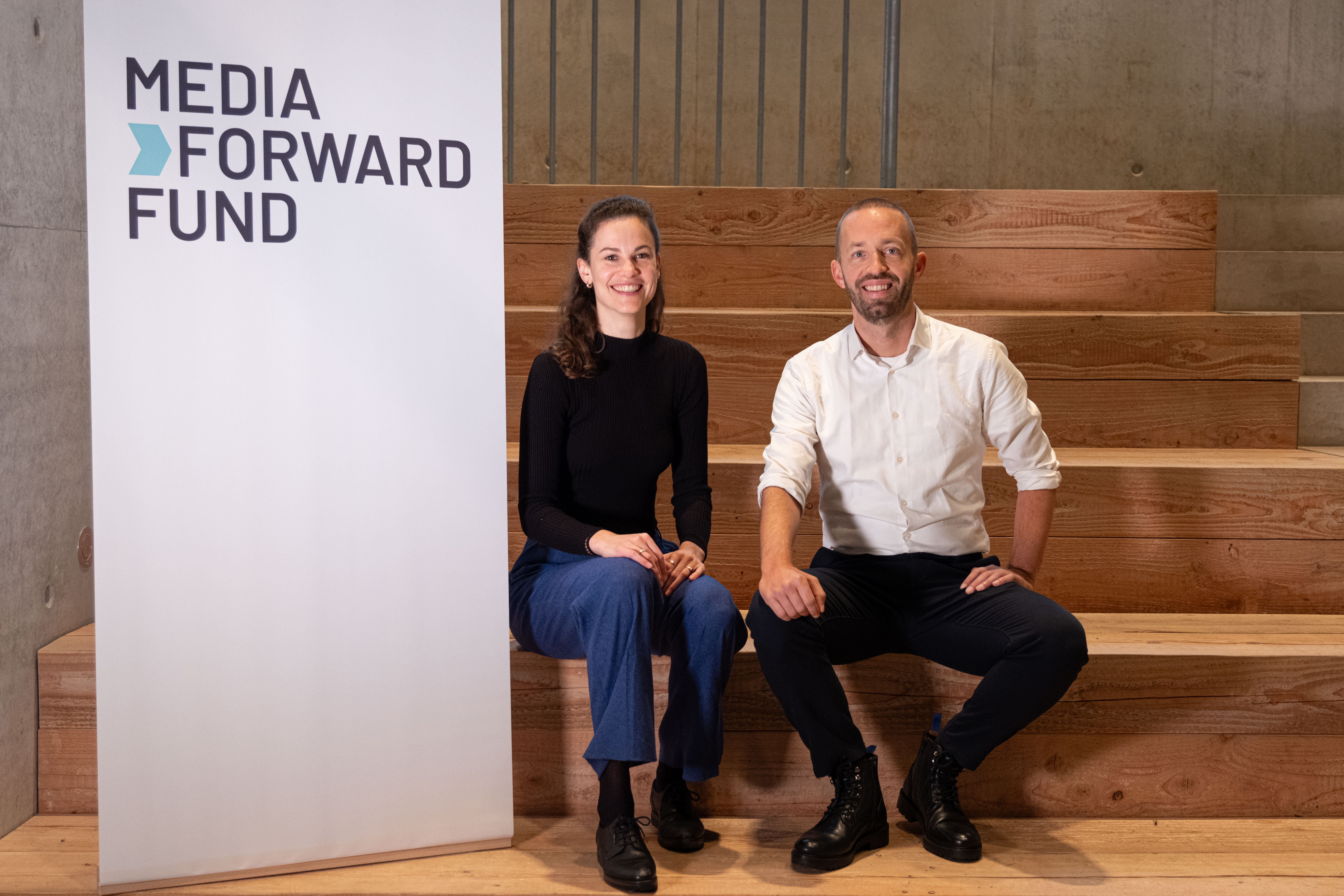
Johanna Weidtmann and Christian Zeier from the Swiss medium Reflekt (Copyright: Paul Alexander Probst)
Dossier
General Funding Line
The Austrian ad-free investigative media outlet Dossier from Vienna, which has been reporting on corruption, exploitation and abuse of power for more than twelve years, is receiving 390,000 euros in funding. Dossier wants to increase its membership funnel by bringing its investigations to the theater stage.
"By bringing its journalistic work to the stage and thus (back) into the analog world, Dossier is exploring new ways of connecting with its audience and stimulating a deeper engagement with the results of their investigations and its impact on society," highlighted the jury: "If the planned live journalism formats succeed, a completely new journalistic genre with immersive character could emerge and prove a new, public interest-oriented revenue model for the whole sector."
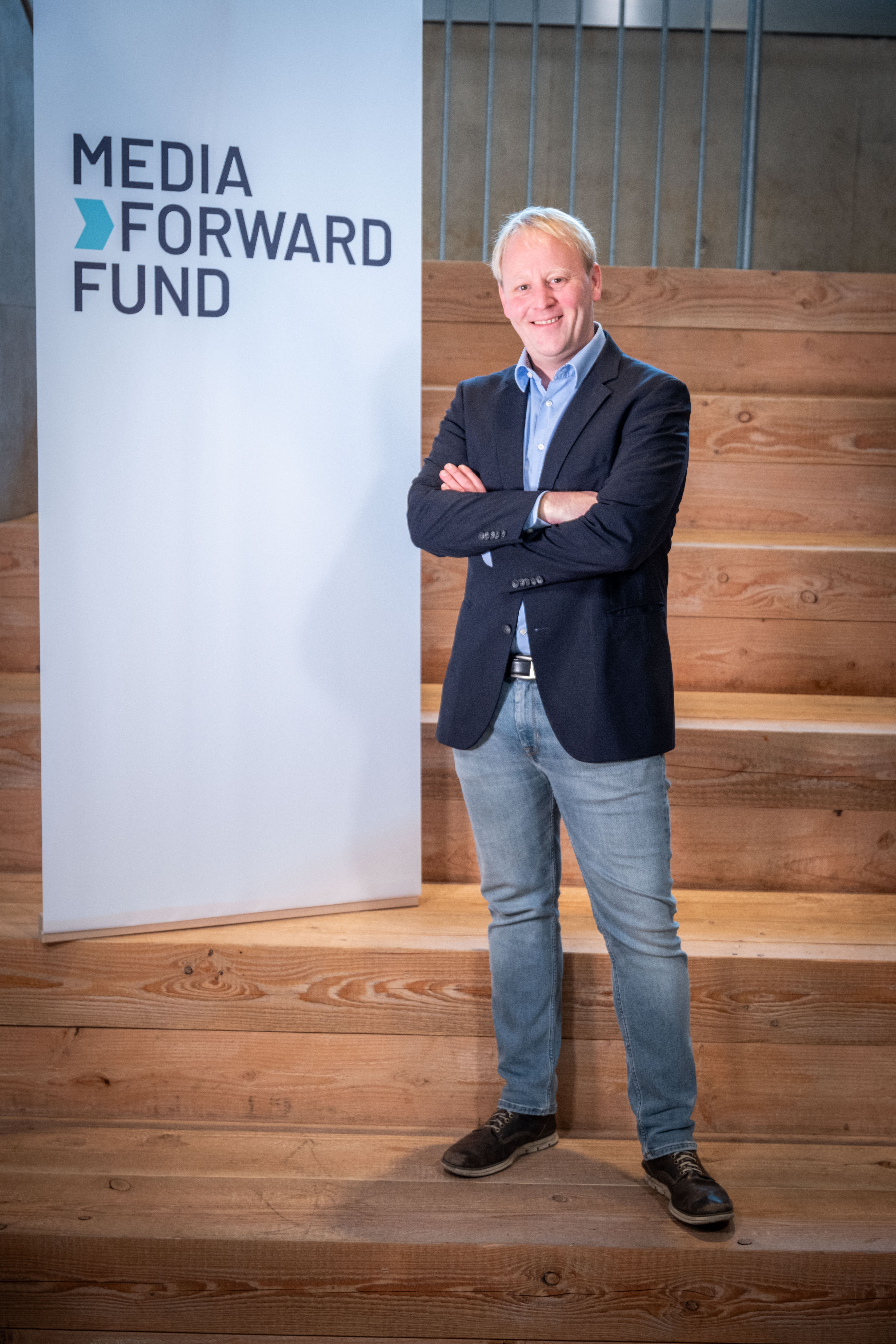
Florian Skrabal from the Austrian medium Dossier (Copyright: Paul Alexander Probst)
Medienhaus andererseits
General Funding Line
The Austrian media organization Medienhaus andererseits from Vienna, where people with and without disabilities have been writing for two years in an inclusive and community-based editorial team for a print magazine, two newsletters and investigative research, is receiving 400,000 euros in funding. Andererseits would like to expand its distribution channels for subscriptions with a newsletter for the “underserved community” of people with disabilities.
The jury was particularly positive about "the submitted project design as evidence of the organization's highly professional approach and strong focus on users." "In contrast to many other media, Andererseits is successful in producing genuine and credible inclusive journalism in line with quality journalistic standards, even if this is more time-consuming and therefore more cost-intensive", the jury explained. "The project therefore not only fulfills an important pioneering function, but also has the potential to offer possible approaches for a more inclusive development of the journalistic sector."
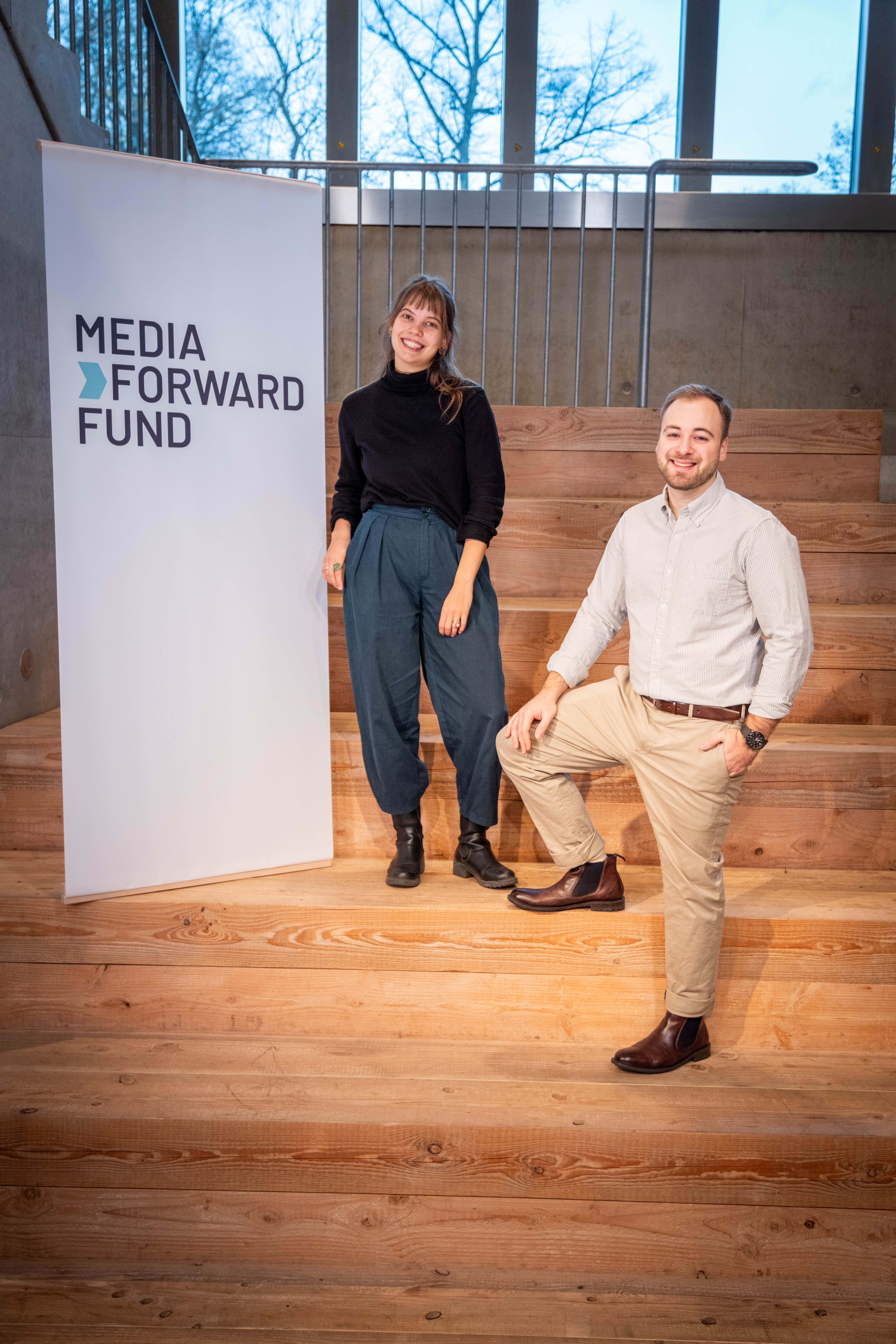
Clara Porák and Lukas Burnar from the Austrian media organization Medienhaus andererseits (Copyright: Paul Alexander Probst)
Tsüri
General Funding Line
Tsüri, a Swiss local public interest-oriented medium from Zurich, which has been publishing information for a predominantly young target group for ten years, is supported by the MFF with a grant of 400,000 euros to the association linked to Tsüri. Through workshops and prototypes, the aim is to find to find out how newsletter-based reporting on the hyperlocal niche topic of Zurich's housing crisis can help to expand the distribution channel and gain more members.
“Tsüri is so far exemplary for financially sustainable and profitable local journalism based on an authentic and credible narrative,” states the jury in its statement. “Dedicating itself to an even more hyperlocal topic in the future in order to attract additional members is an exciting experiment that few have dared to undertake to date.”
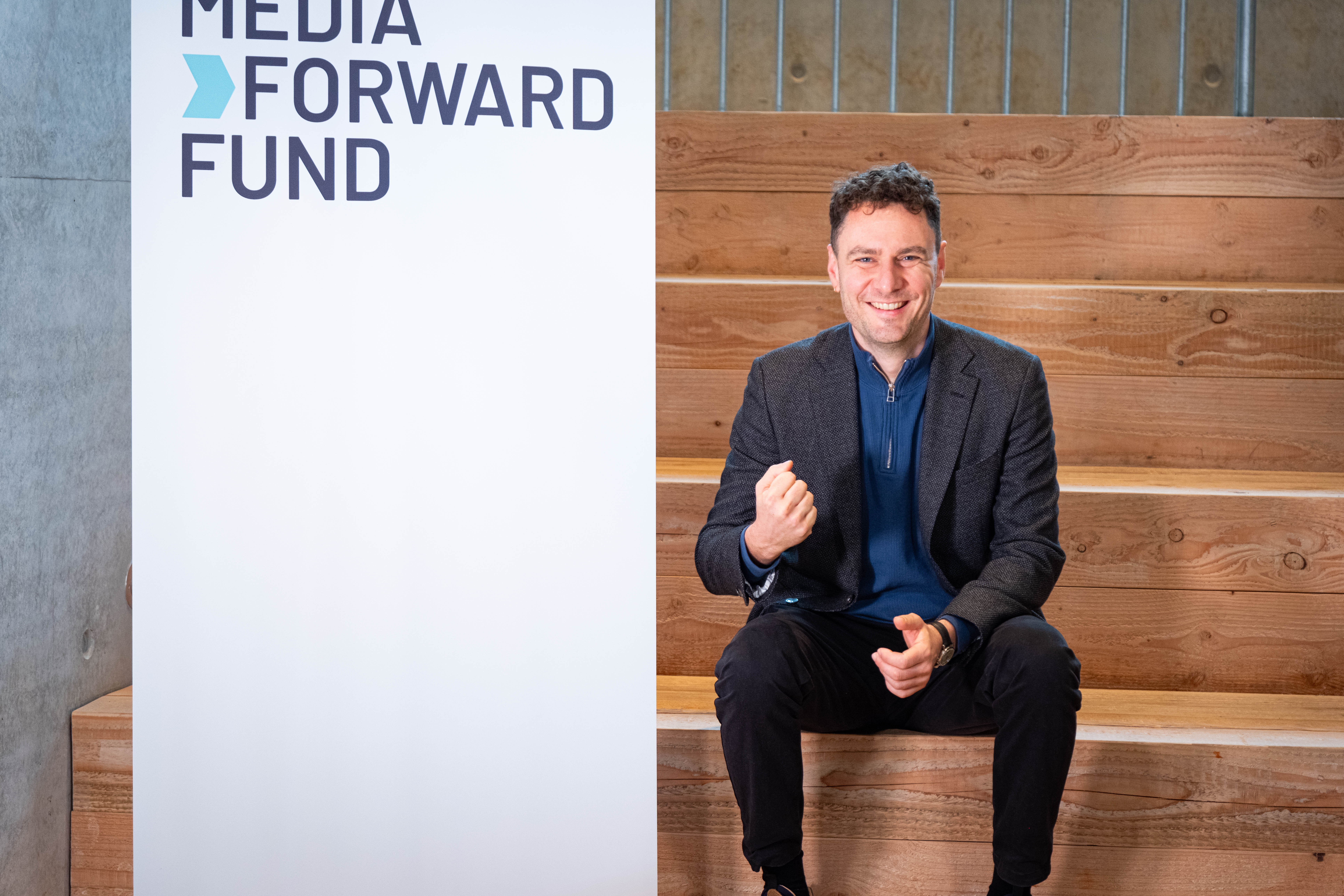
Simon Jacoby from the Swiss Medium Tsüri (Copyright: Paul Alexander Probst)